How Weak Infrastructure Impacts Currency Value in Emerging Markets
VerifiedAdded on 2023/06/15
|5
|623
|344
Essay
AI Summary
This essay examines the impact of weak infrastructure on currency values in emerging markets. It highlights how inadequate governance, political instability, corruption, and weak legal systems create an insecure business environment, increasing investment risk. The essay discusses how a volatile economic environment, characterized by unstable governments and fluctuating currencies, can lead to foreign investors withdrawing funds, further weakening the currency. It contrasts flexible and fixed exchange rate regimes, suggesting a pseudo-flexible approach where the exchange rate is market-driven but supported by sufficient reserves to mitigate volatility. Ultimately, the essay concludes that weak infrastructure-induced currency volatility undermines investor confidence and hinders economic growth in emerging markets, and students can find similar solved assignments on Desklib.
1 out of 5
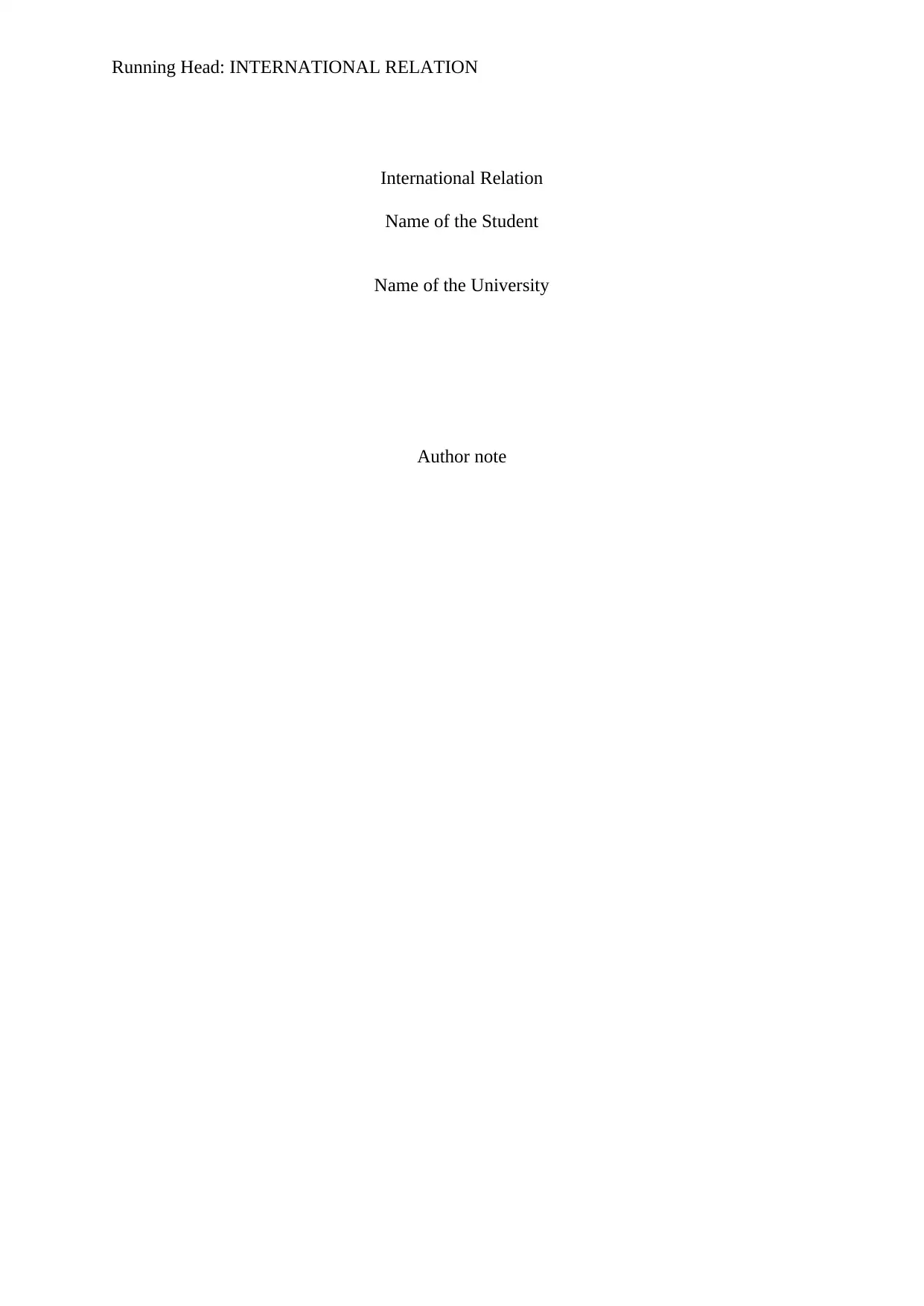
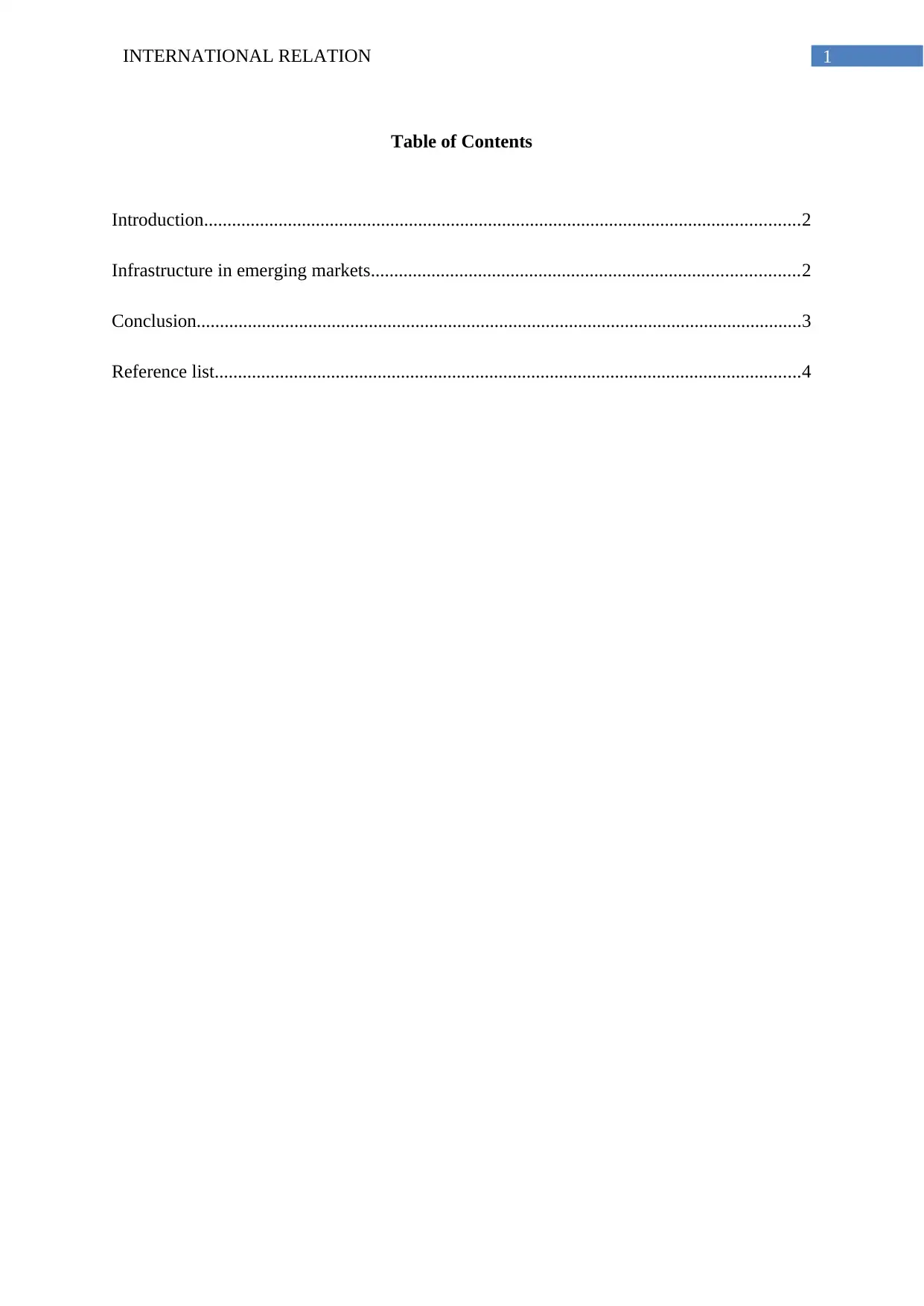
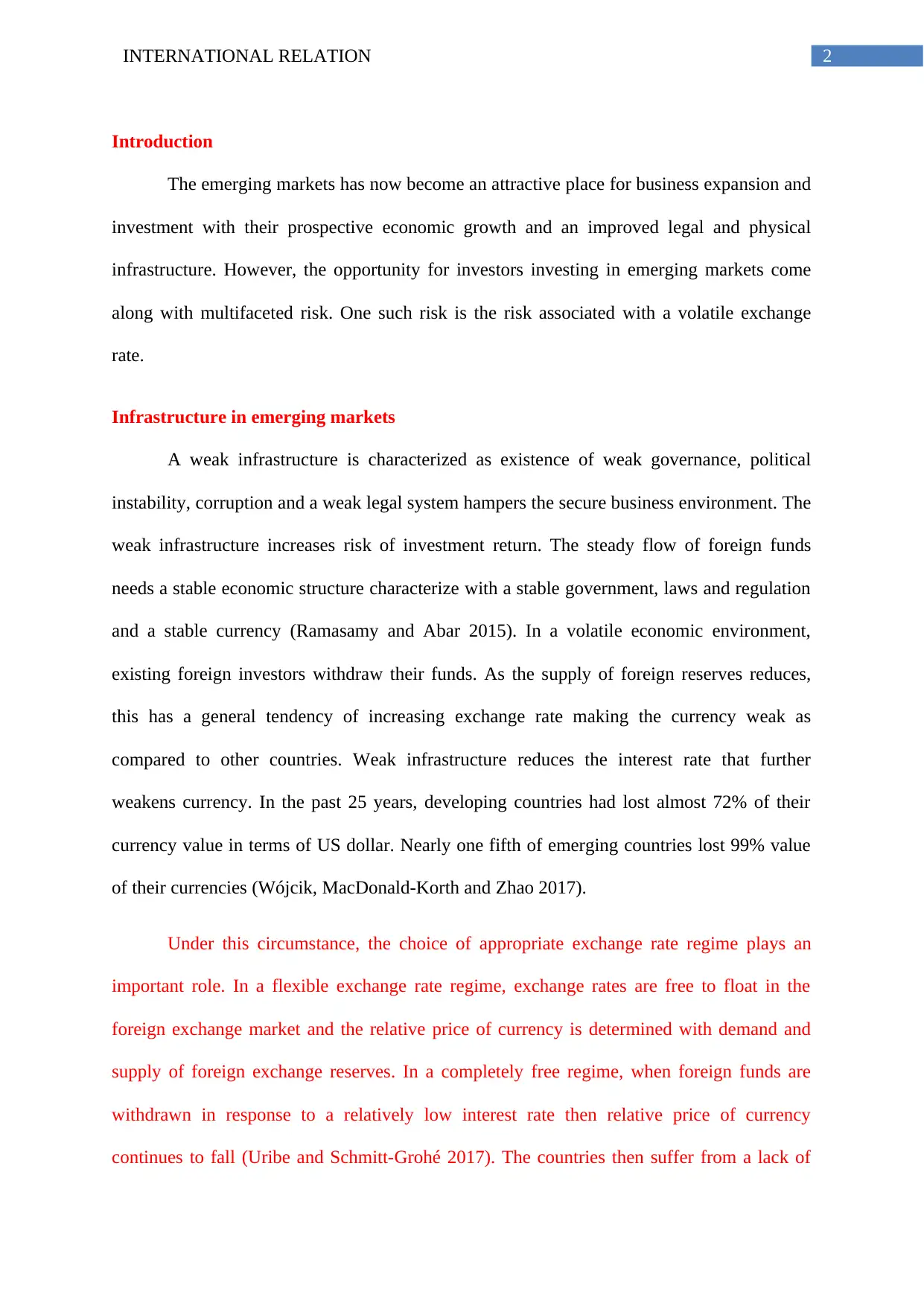

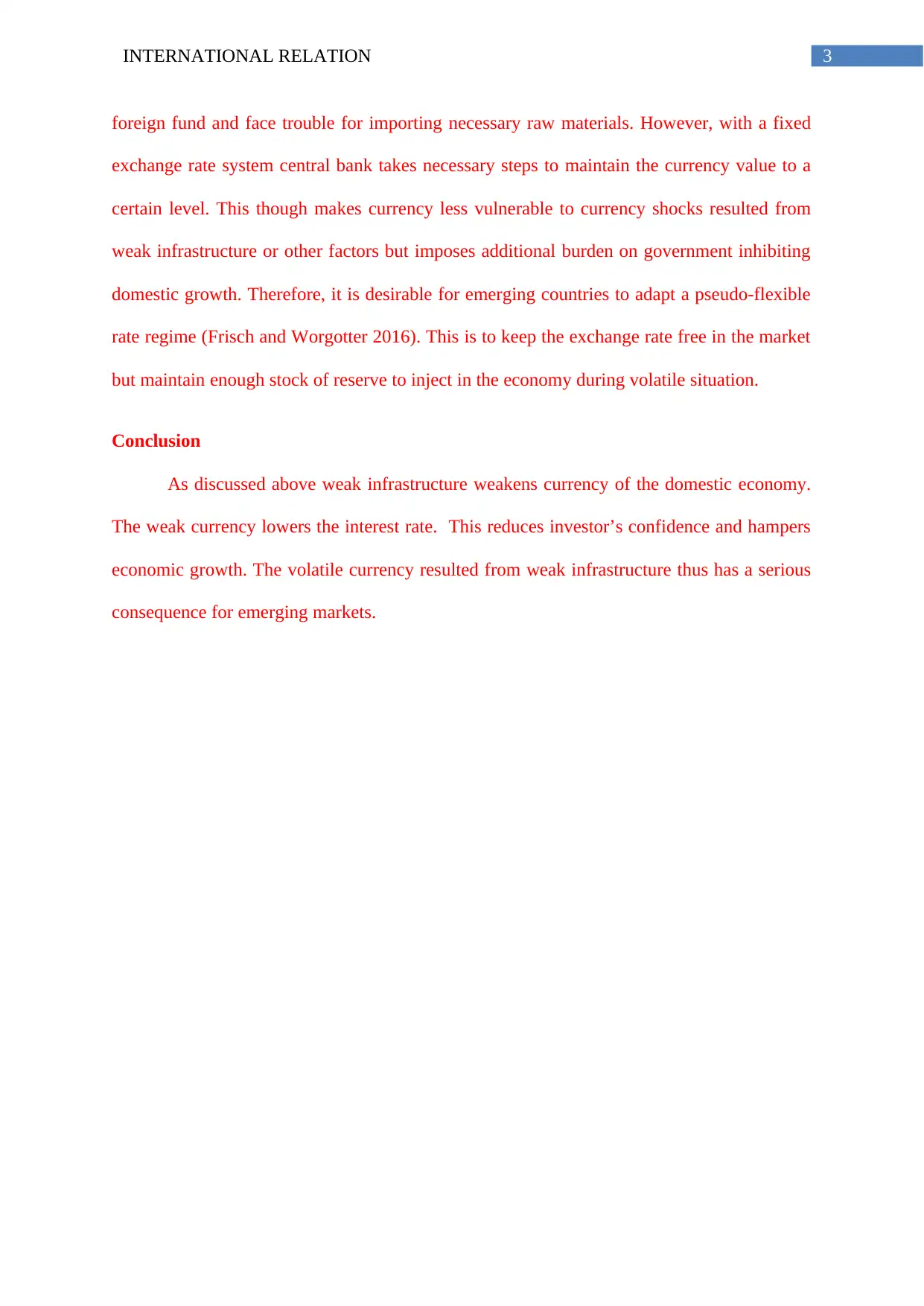
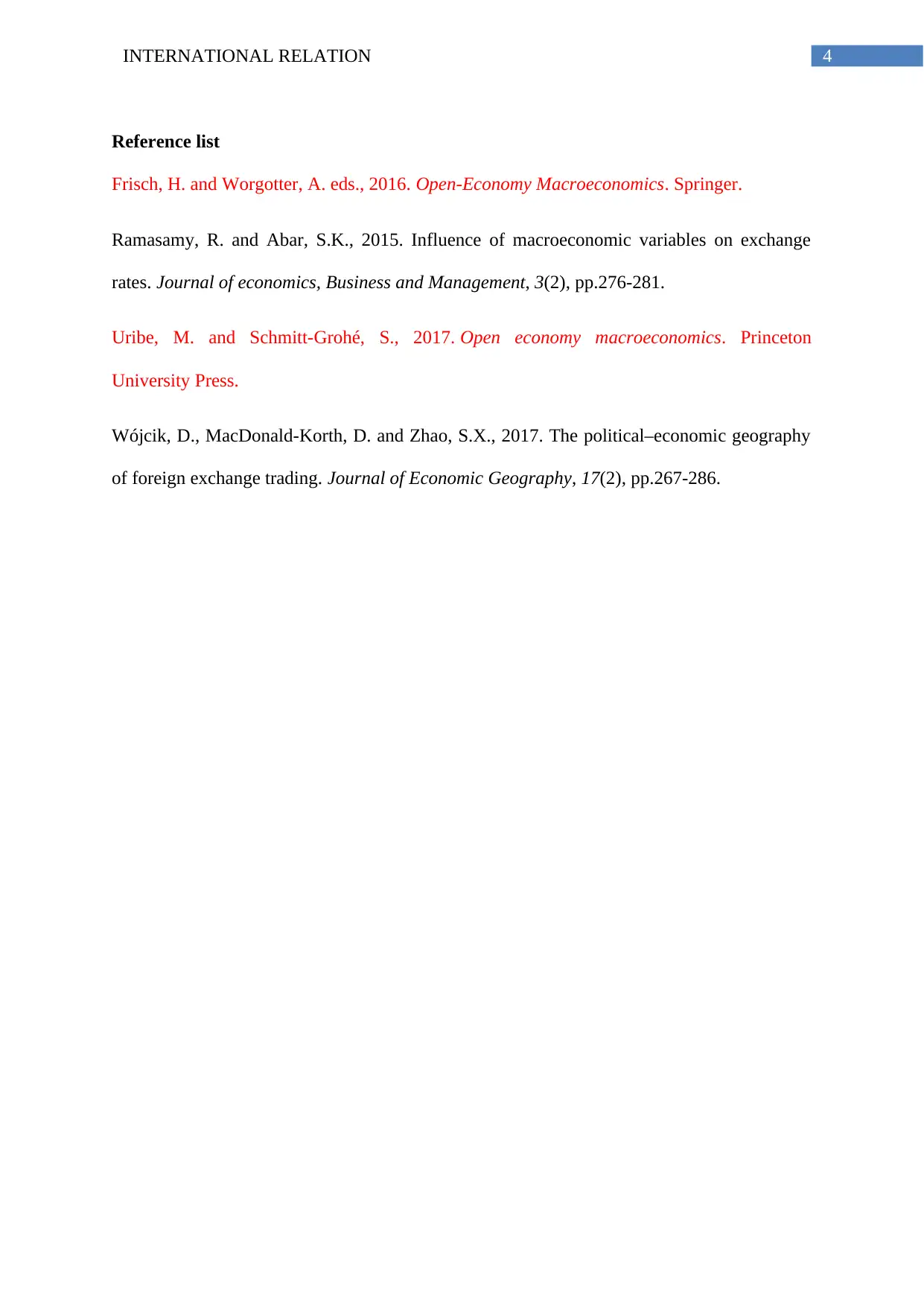






![[object Object]](/_next/static/media/star-bottom.7253800d.svg)